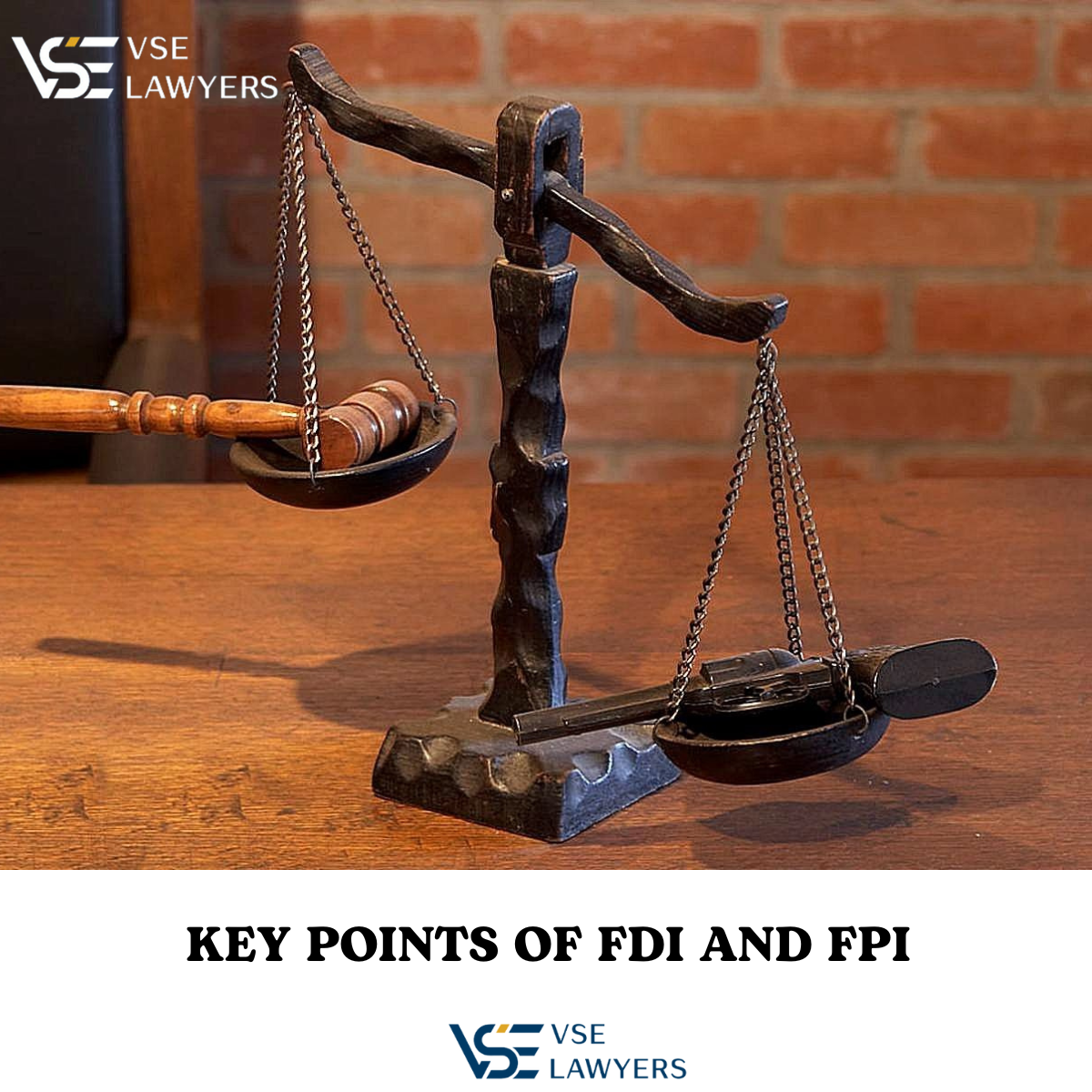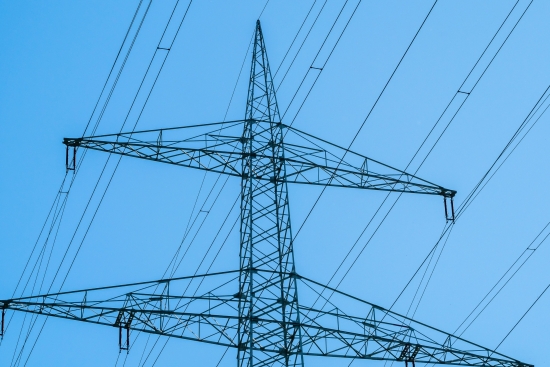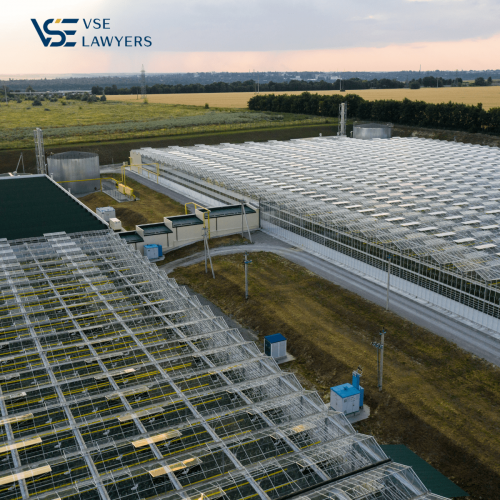KEY POINTS OF FDI AND FPI
International investment continues to be an essential and inevitable trend for all countries in the era of global economic integration. As a result, the general direction of international investment is progressively broadening the scope of investment relationships and the range of investment categories. At present, outward investment capital plays a crucial role in developing each nation.
23/08/2023

International investment continues to be an essential and inevitable trend for all countries in the era of global economic integration. As a result, the general direction of international investment is progressively broadening the scope of investment relationships and the range of investment categories. At present, outward investment capital plays a crucial role in developing each nation.
Outward investment sources encompass Foreign Direct Investment (FDI) and Foreign Portfolio Investment (FPI). Essentially, these are straightforward activities where foreign investors allocate capital to invest in businesses of one or multiple different countries to generate profits through their investment endeavors.
1. Foreign Direct Investment (FPI):
1.1. Foreign Indirect Investment Entities in Vietnam
Indirect investment by foreign investors in Vietnam can take 2 forms:
a. Purchasing shares, stocks, bonds, and other valuable papers;
b. Investment funds, securities investment funds, and intermediary financial institutions.
According to Article 2 of Circular No. 05/2014/TT-NHNN, which regulates the entities of foreign indirect investment, the following are included:
- Foreign investors who are nonresidents conducting indirect investment activities in Vietnam;
- Organizations and individuals who are related to indirect investment activities in Vietnam.
Indirect foreign investment in Vietnam does not apply to foreign investors being residents who are foreign organizations and individuals.
Foreign indirect investors do not directly participate in the management and operation of investment capital utilization activities. The ownership rights to the invested capital belong to the investor, while the rights to operate the investment capital utilization activities belong to the receiving party of the investment. These entities carry out indirect investment activities in Vietnam by the current regulations on securities laws and other related legal documents.
1.2. Opening of capital accounts for indirect investment and utilizing the invested capital
All indirect investment activities of foreign investors in Vietnam must be conducted in Vietnam Dong.
Transactions relating to foreign indirect investment activities in Vietnam of foreign investors must be conducted through 01 (one) indirectly invested capital account opened at 01 (one) licensed bank.
- When conducting foreign indirect investment activities in Vietnam under forms as prescribed in section 3, foreign investors will have to comply with the provisions:
+ Circular No. 05/2014/TT-NHNN;
+ Legal provisions on opening and use of payment accounts;
+ Provisions of the Law on Securities, documents guiding the Law on Securities;
+ Prevailing legal provisions about activities of capital contribution, purchase of shares in Vietnamese enterprises of foreign investors, activities of foreign investors on the securities market of Vietnam, and other relevant legal provisions.
- Balance on indirectly-invested capital accounts of foreign investors are not permitted to transfer to definite-term deposits and saving deposits at credit institutions and branches of foreign banks.
Entities falling under the regulation of Circular No. 05/2014/TT-NHNN will proceed to open capital accounts for indirect investment in Vietnam. As stipulated in Article 6 of Circular No. 05/2014/TT-NHNN, the guidelines for opening capital accounts for indirect investment are as follows:
Opening of capital accounts for indirect investment
1. When conducting indirect investment activities in Vietnam, the foreign investor will have to open one (01) capital account of indirect investment at one (01) licensed bank for implementation of receipt-payment transactions permitted under provisions of Article 7 of this Circular.
2. In the case where the foreign investor is having and using a capital account of indirect investment at a licensed bank but has a demand to open another indirectly-invested capital account in another licensed bank, such foreign investor is requested to close the existing capital account for direct investment, transfer all the balance in this account to the new account. The procedure for the opening and closing of the capital account for indirect investment will be conducted according to the provisions of the licensed bank.
The foreign investor will only be entitled to conduct receipt and expense transactions on the newly-opened capital account of indirect investment as prescribed above after having the previously-opened capital account of indirect investment closed and settled.
According to the regulations, when foreign investors engage in indirect investment in Vietnam, they are only allowed to open and conduct transactions related to income and expenses on a single designated capital account for indirect investment with an authorized bank.
In the case where the foreign investor is having and using a capital account of indirect investment at a licensed bank but has a demand to open another indirectly-invested capital account in another licensed bank, such foreign investor is requested to close the existing capital account for direct investment, transfer all the balance in this account to the new account.
The foreign investor will only be entitled to conduct receipt and expense transactions on the newly-opened capital account of indirect investment as prescribed above after having the previously-opened capital account of indirect investment closed and settled.
The indirectly-invested capital account will be used for the implementation of receipt-payment transactions relating to foreign indirect investment activities in Vietnam as stipulated in Article 7 of Circular No. 05/2014/TT-NHNN, as follows:
Use of indirectly-invested capital accounts
“The indirectly-invested capital account will be used for the implementation of receipt-payment transactions relating to foreign indirect investment activities in Vietnam as follows:
1. Receipts:
a) Receipts from selling foreign currencies to licensed credit institutions;
b) Receipts from the transfer of contributed capital, shares, sale of securities and other valuable papers, receipt of dividends and interests from bonds and valuable papers in Vietnam Dong from foreign indirect investment activities in Vietnam;
c) Receipts of transfer from payment accounts in Vietnam Dong of foreign investors opened at licensed banks;
d) Receipts of transfer from accounts of fund management enterprises, securities companies, credit institutions, and branches of foreign banks permitted to conduct investment trust operation for foreign investors (applied in cases that foreign investors conduct indirect investment in Vietnam under the form of investment trust);
dd) Other legal transactions of receipts in Vietnam Dong of foreign investors relating to foreign indirect investment activities in Vietnam.
2. Payments:
a) Payments for implementation of foreign indirect investment activities in Vietnam under forms prescribed in Article 5 of this Circular;
b) Payments for buying foreign currencies from licensed credit institutions in order to transfer capital, interests, and other lawful incomes to foreign countries;
c) Payments for legal expenses incurred in Vietnam;
d) Payments for transfer to payment accounts in Vietnam Dong of foreign investors opened at licensed banks;
dd) Payments for transfer to accounts of fund management enterprises, securities companies, and organizations permitted to conduct investment trust operations for foreign investors (applied in cases that foreign investors conduct indirect investment in Vietnam under the form of investment trust);
e) Other transactions for lawful payments relating to foreign indirect investment activities in Vietnam.”
1.3. Forms of Foreign Indirect Investment in Vietnam
The forms of foreign indirect investment in Vietnam, as per Article 5 of Circular No. 05/2014/TT-NHNN (amended by Circular No. 06/2019/TT-NHNN), are as follows:
- Capital contribution, purchase, or sale of shares or stakes of Vietnamese enterprises which are not yet to be listed or registered for transaction on stock exchanges of Vietnam and not in the cases specified in clause 2 Article 3 of Circular No. 06/2019/TT-NHNN and other amended documents (if any) which are not listed or registered for trading on the Stock Exchange.
Accordingly, in Clause 2, Article 3 of Circular No. 06/2019/TT-NHNN, foreign-invested enterprises are defined to include:
+ Any enterprise established in the form of investment of establishing a business organization whose members or shareholders are foreign investors and granted the investment registration certificate in accordance with the law on investment;
+ Any enterprises other than those prescribed in point a of this clause and at least 51% of charter capital of which is owned by foreign investors as follows:
- Any enterprises (operating in conditional business lines or without conditions applicable to foreign investors) at least 51% of charter capital of which is held by foreign investors through contribution purchase of shares/stakes;
- Enterprises derived from division, acquisition, and consolidation whose 51% of charter capital is owned by foreign investors after such events;
- New enterprises established in accordance with relevant laws;
+ Project enterprises established by foreign investors to implement PPP projects in accordance with the law on investment.
- Accordingly, in Clause 2, Article 3 of Circular No. 06/2019/TT-NHNN, foreign-invested enterprises are defined to include:
+ Any enterprise established in the form of investment of establishing a business organization whose members or shareholders are foreign investors and granted the investment registration certificate in accordance with the law on investment;
+ Any enterprises other than those prescribed in point a of this clause and at least 51% of charter capital of which is owned by foreign investors as follows:
• Any enterprises (operating in conditional business lines or without conditions applicable to foreign investors) at least 51% of charter capital of which is held by foreign investors through contribution purchase of shares/stakes;
• Enterprises derived from division, acquisition, and consolidation whose 51% of charter capital is owned by foreign investors after such events;
• New enterprises established in accordance with relevant laws;
+ Project enterprises established by foreign investors to implement PPP projects in accordance with the law on investment.
- Sales and purchase of bonds and other types of stocks on the securities market of Vietnam.
- Sale and purchase of other valuable papers in Vietnam Dong which are permitted to issue within the territory of Vietnam by organizational residents.
- Investment trust in Vietnam Dong through fund management companies, securities companies, and organizations are permitted to conduct the investment trust operation under the legal provisions on securities;
- Investment trust in Vietnam Dong through credit institutions and branches of foreign banks are allowed to conduct the investment trust operation under the provisions of the State Bank.
- Capital contribution, transfer of stakes of foreign investors in securities investment funds and fund management enterprises according to legal provisions on securities.
- Other forms of indirect investment as regulated by the law.
All indirect investment activities of foreign investors in Vietnam must be conducted in Vietnam Dong. Transactions relating to foreign indirect investment activities in Vietnam of foreign investors must be conducted through an indirectly-invested capital account opened at the licensed bank.
2. Foreign Direct Investment (FDI)
2.1. Foreign Direct Investment Entities in Vietnam.
According to Clause 2, Article 3 of Circular No. 06/2019/TT-NHNN, foreign-invested enterprises include:
“2. According to Clause 2, Article 3 of Circular No. 06/2019/TT-NHNN, foreign-invested enterprises include:
a. Any enterprise established in the form of investment of establishing a business organization whose members or shareholders are foreign investors and granted the investment registration certificate in accordance with the law on investment;
b. Any enterprises other than those prescribed in point a of this clause and at least 51% of charter capital of which is owned by foreign investors as follows:
(i) Any enterprises (operating in conditional business lines or without conditions applicable to foreign investors) at least 51% of charter capital of which is held by foreign investors through contribution purchase of shares/stakes;
(ii) Enterprises derived from division, acquisition, and consolidation whose 51% of charter capital is owned by foreign investors after such events;
(iii) New enterprises established in accordance with relevant laws;
c. Project enterprises established by foreign investors to implement PPP projects in accordance with the law on investment.”
2.2. Opening and using direct investment accounts:
Entities falling under the regulation of Circular No. 06/2019/TT-NHNN must open and utilize direct investment capital accounts, specifically:
The following entities shall open and use direct investment accounts include:
- Enterprises with foreign direct investment capital as prescribed in clause 2 Article 3 of Circular No. 06/2019/TT-NHNN;
- Foreign investors participate in BCC or directly implement PPP projects without establishing project enterprises (hereinafter referred to as foreign investors directly implementing PPP projects).
An investor specified in the aforementioned regulations shall open the direct investment account as follows:
+ Open a foreign currency account at one (01) authorized bank to receive and make payments in that currency during the process of foreign direct investment in Vietnam;
+ Only 01 (one) direct investment account may be opened for a foreign currency at one (01) authorized bank;
+ In case of investing in Vietnamese dong, the investor opens one (01) direct investment account in Vietnamese dong at the authorized bank where the direct investment account in foreign currency is opened to receive and make payment in VND during the process of foreign direct investment in Vietnam;
+ In case the foreign investor participates in several BCCs or directly implements several PPP projects, such foreign investor shall open a direct investment account for each BCC or PPP project.
- If the currency of an overseas loan is different from the currency of the FDI enterprise’s direct investment accountas follows:
+ The FDI enterprise’s direct investment may open other direct investment accounts of the loan currency at authorized banks where they have already held direct investment accounts in order to perform their receipt and expenditure transactions regarding foreign loans in accordance with regulations of law on overseas loan receipt and repayment of enterprises.
- In case the authorized bank is changed, the account holder prescribed in clause 1 of this Article shall:
+ Open another direct investment account at another authorized bank;
+ Transfer all the balance from old direct investment accounts into the new ones and close the former;
+ Direct investment accounts at other authorized banks shall only be used for performing receipts and expenditures transactions prescribed in Article 6,7 of Circular No. 06/2019/TT-NHNN after the process prescribed is completed.
- Procedures for the opening and closing of direct investment accounts must adhere to regulations of the State Bank of Vietnam (hereinafter referred to as the State Bank) on opening and using of demand accounts at payment service providers.
2.3. Forms of foreign direct investment in Vietnam
a. Investment according to the investor’s purpose
Based on the investor's purpose, it will be divided into 2 forms:
- Horizontal investment is a form of investment where capital is only poured into foreign companies in the same industry or producing similar products as in the investing company.
- Vertical investment is a form of investment carried out along the supply chain of the company, which can be within a single industry or across multiple different industries.
b. Investment in establishing economic organizations
Investment for establishing economic organizations is a form of direct investment where the investor, as a legal economic entity, injects capital and assets to establish a new business.
c. Mergers and Acquisitions of Enterprises
At present, M&A activities are specified in various specialized legal documents like Enterprise Law, Competition Law, and Investment Law, but all share the common main objective of engaging in the management of economic organizations. The investment methods encompass:
- Directly contribute capital to a business by participating in LLC's charter capital or purchasing newly issued shares to increase JSC's charter capital.
- Repurchase contributed capital or shares previously issued from members or shareholders of the company. Unlike the form of direct capital contribution to a business, this is an investment method that doesn't increase the charter capital of the business but can alter the ownership structure of contributed capital/shares.
- Mergers, consolidations, divisions, and separations are conducted by the prevailing Enterprise Law regulations.
Capital contribution to companies and purchasing contributed capital or shares of a company are the most common and regular activities, as most enterprises fall under the categories of LLCs or joint-stock companies. Other forms are only applied in specific investment activities.
d. Investment under the Business Cooperation Contract (BCC) form
A BCC is a business cooperation contract, a contract signed between investors to collaborate in business, profit sharing, and product division without establishing an economic organization. Depending on the contract's parties, the legal regulations for the contract will differ. For BCC contracts signed between domestic and foreign investors or between foreign investors, the procedure for issuing an Investment Registration Certificate must be followed.
----------
For more information, please contact:
Hoang Pham (James) / Managing Partner at: hoang.pham@vselawyers.com
© 2023 VSE LAWYERS LIMITED LIABILITY LAW COMPANY – All rights reserved.
Attention: This legal update is not an advice and should not be treated as such.
Subscribe To Legal Advice from VSE Lawyers
If you would like to have any legal questions, please contact us for our advice




